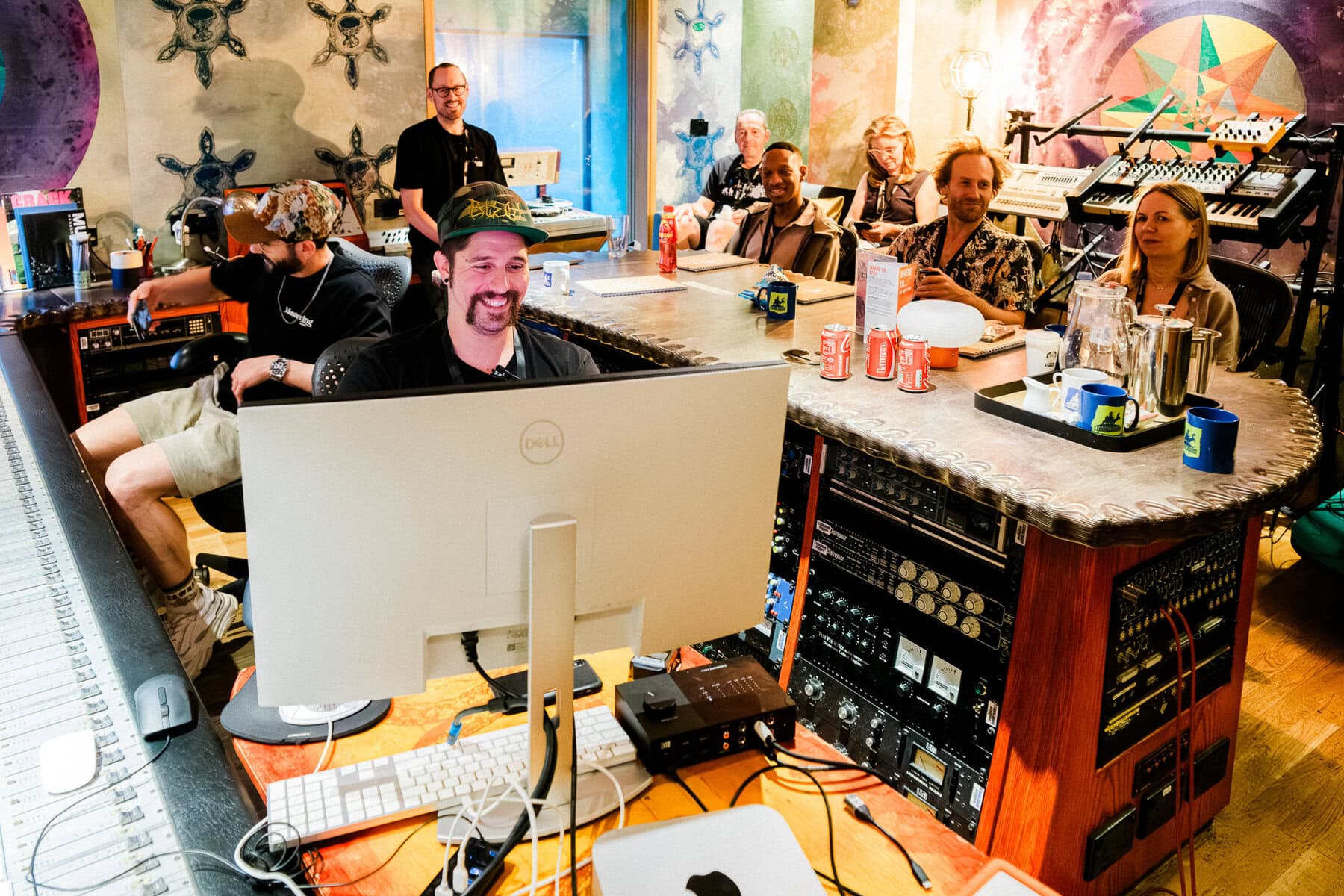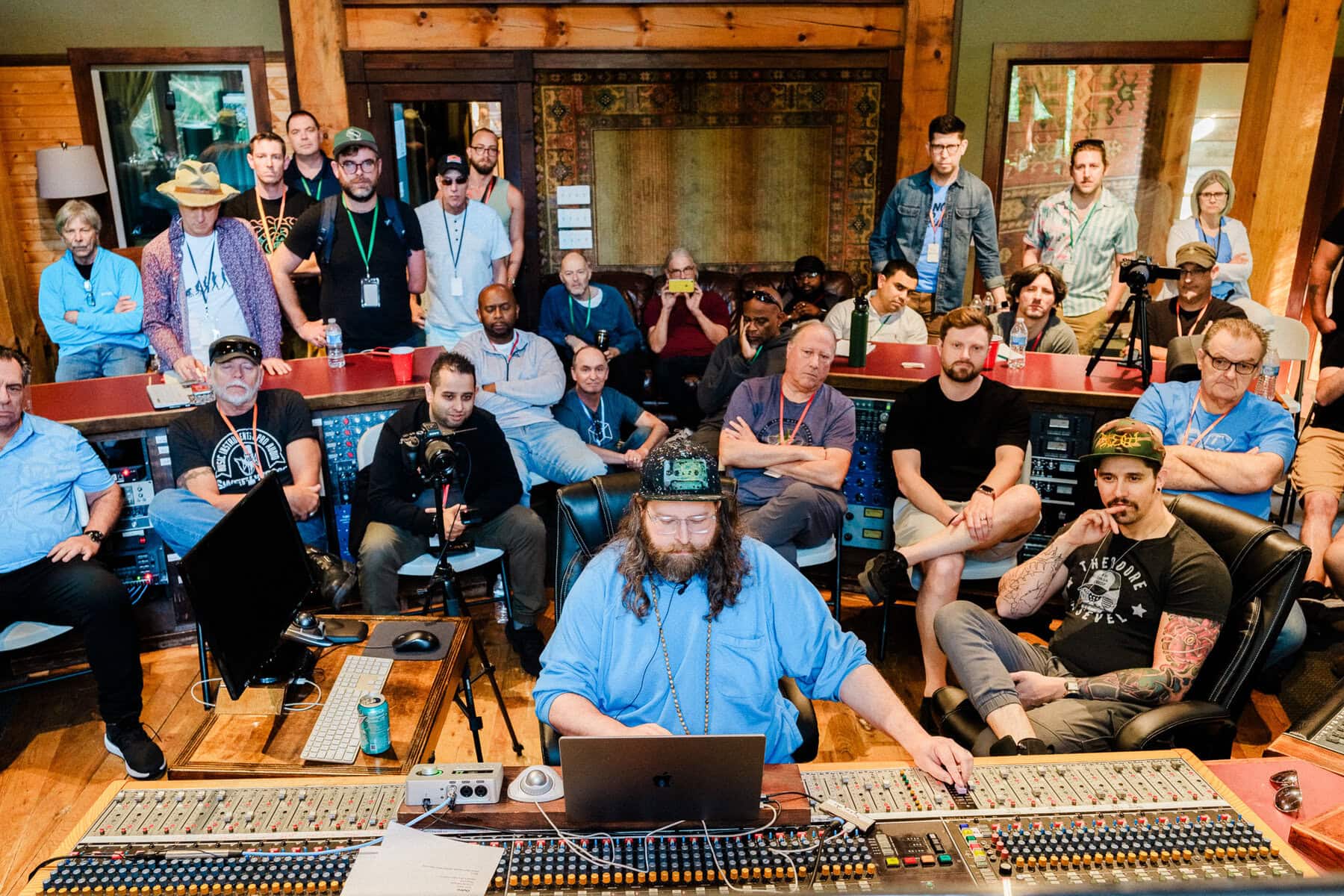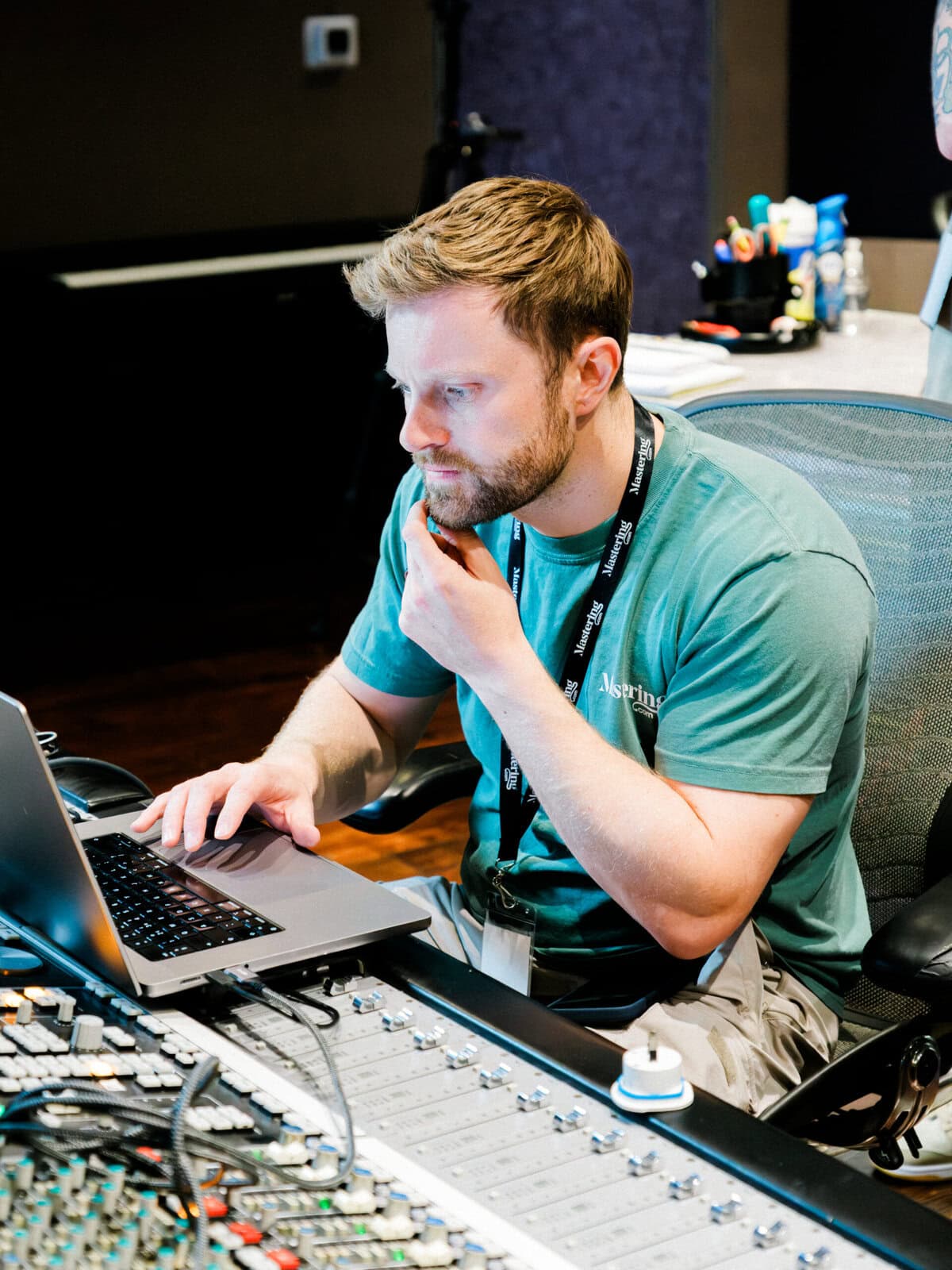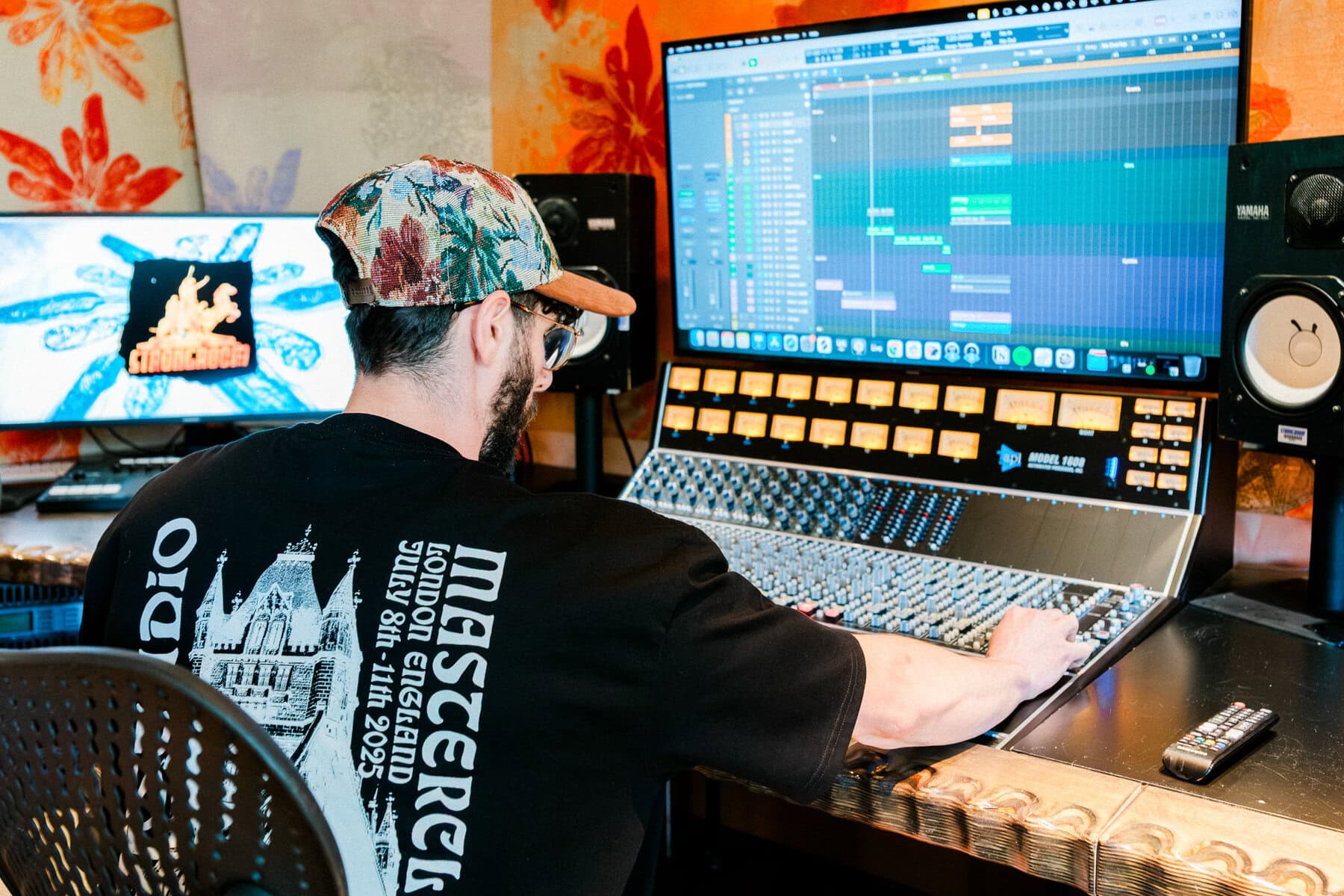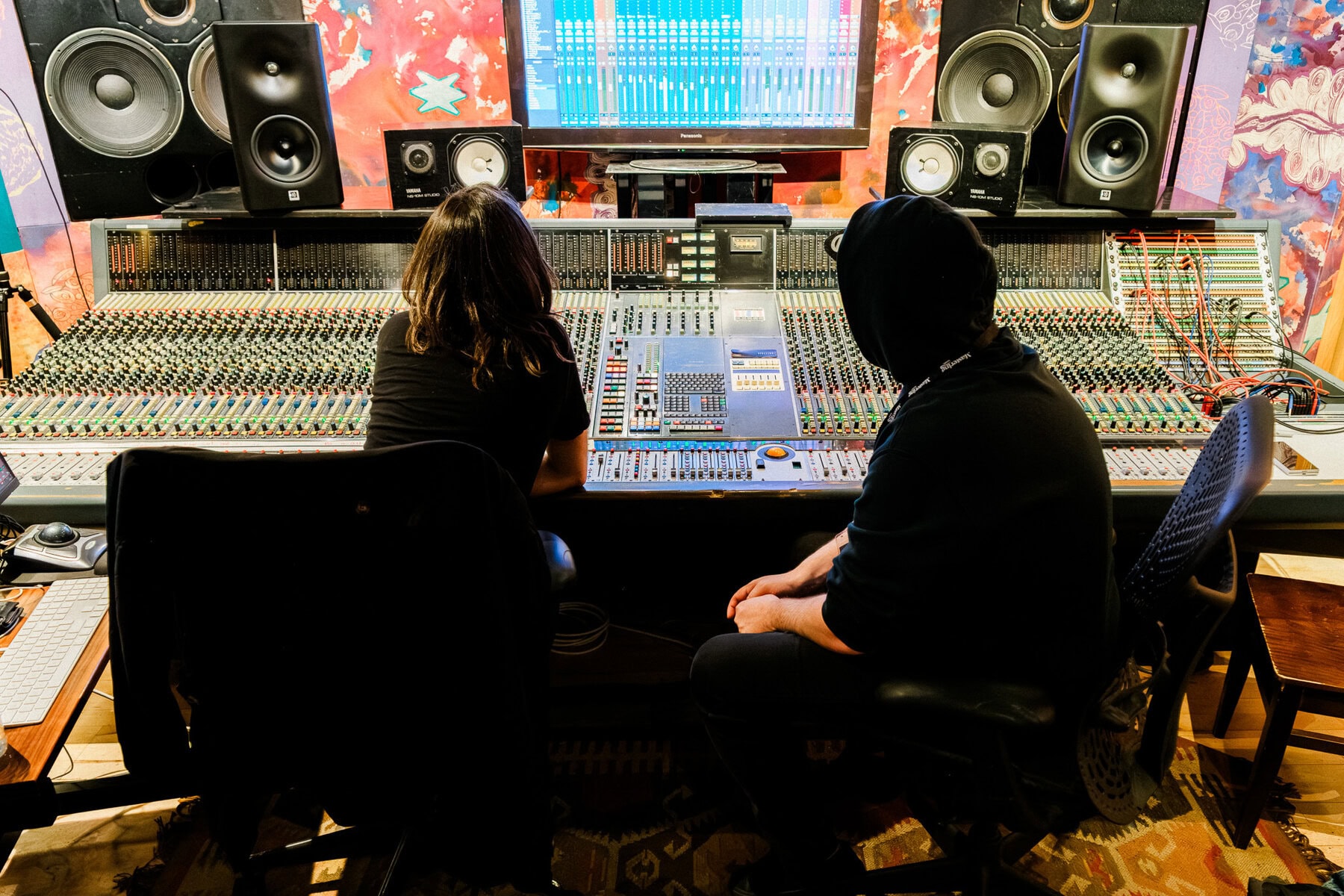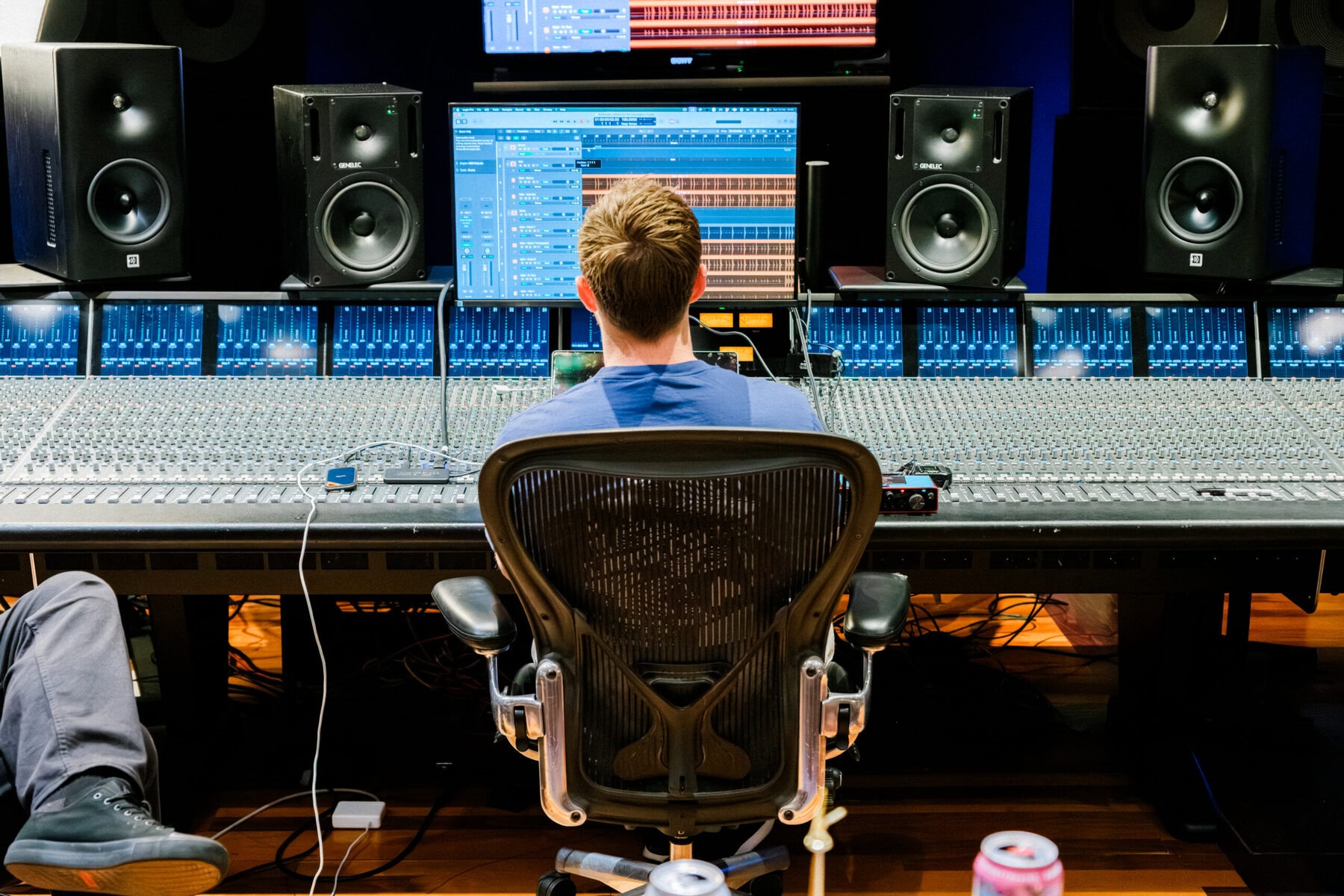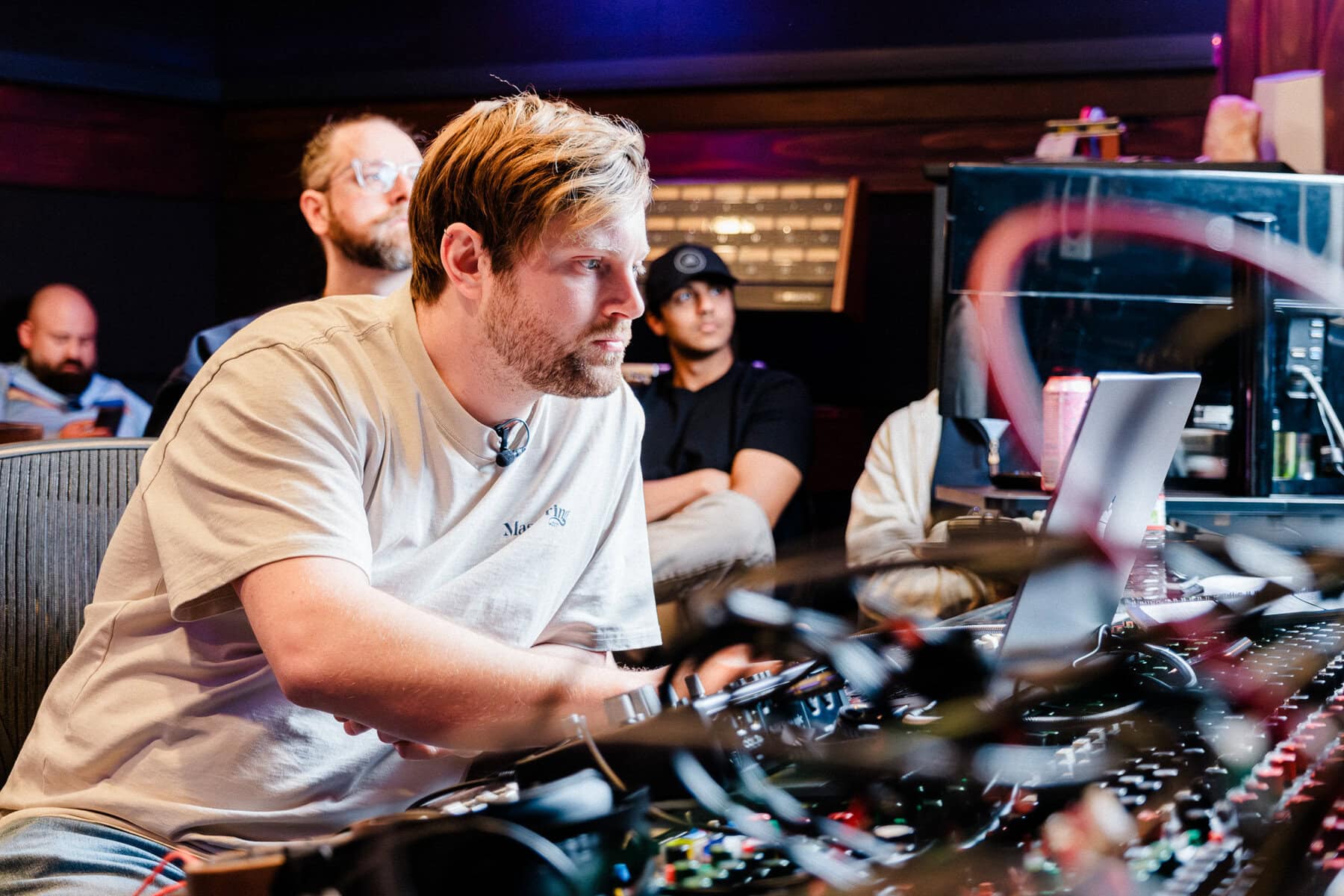Finding music inspiration is extremely important for any songwriter.
Sometimes our minds seems to be wells filled to the brim with ideas. Just a couple of minutes is enough to dream up a huge new project.
But sometimes the well runs dry. No matter how hard you try to rack your brain for song ideas, nothing comes to mind.
To help you keep those ideas flowing, I’ve put together this guide to finding music inspiration.
Inspiration is one of the most important tools in any creative’s bag. It pushes us to try new things and helps us stay excited about our work.
This guide is intended to help you think creatively more often, giving you more opportunities for inspiration to hit.
If you’re like most composers and writers, you’re probably producing your own music as well. We put together a brief training that covers a totally new approach to music production. Until now, everyone has been teaching production totally backward. Just click below to watch. Get industry-quality mixes every time (steal this framework)
But if you just want to learn all about Inspiration specifically, keep reading.
What is Inspiration? Where Does it Come From?
Maybe it’s my extremely useful philosophy degree talking, but before we talk about how to get inspired, I think it’ll help if we talk about what inspiration is first.

We usually talk about inspiration as something that comes out of nowhere. We’re struck by it. It’s a “Eureka!” moment where a new idea becomes clear.
Whether it’s a new melody that you can’t get out of your head or a new idea that changes your worldview, inspiration is the excitement of discovering something new.
The trouble is we’re not always ready to think in new ways. We develop routines and create habits for how we think.
So finding inspiration is really about finding experiences that make us think differently. Here are some of my favorite techniques for creating your own inspiration so you can write better songs faster.
Tip #1: Get Out of Town
Really. Get out of town.

Finding inspiration is about breaking your mental habits. A lot of these habits can be wrapped up in the place you live.
As career coach Dr. Todd Dewett put it in an interview with Moneyish, “We get into ruts at work by following strict routines… Working in a place that’s new, you mess up those routines… waking the brain up, because you’ve changed the script.”
Getting away from your usual surroundings can do wonders for your creative process.
You don’t need to go on some grand adventure. Getting out of town isn’t about chasing excitement. It’s about getting away from what you’re used to.
Take a trip to a city or town that you haven’t spent a ton of time in. You’ll find that you have to think more actively than usual.

Where should you go for food? You don’t know any of the local restaurants, so it looks like you’re going to be taking a gamble no matter what.

That’s an interesting shape for a building, what’s it like to live in it?
You don’t necessarily need to visit a city for this to work, though. The idea is to get out of your usual surroundings, one way or another.
Pull a Bon Iver and go crash in a cabin out in the wilderness for a few days. Getting away from the hustle and bustle may be all you need to focus on a new song.
Or spend an afternoon in a part of your town you don’t normally visit. Maybe there’s a weird tea shop across town you haven’t been to yet. Head there for an hour and see what lyrics it moves you to write!
Breaking your mental habits isn’t necessarily a matter of doing things that are wild and thrilling. Just going somewhere you aren’t used to will make you think about different things than you typically would.
Tip #2: Go for a Walk
When I can’t seem to find the right lyric to push the end of a verse into a chorus, usually a nice walk will give me the answer.
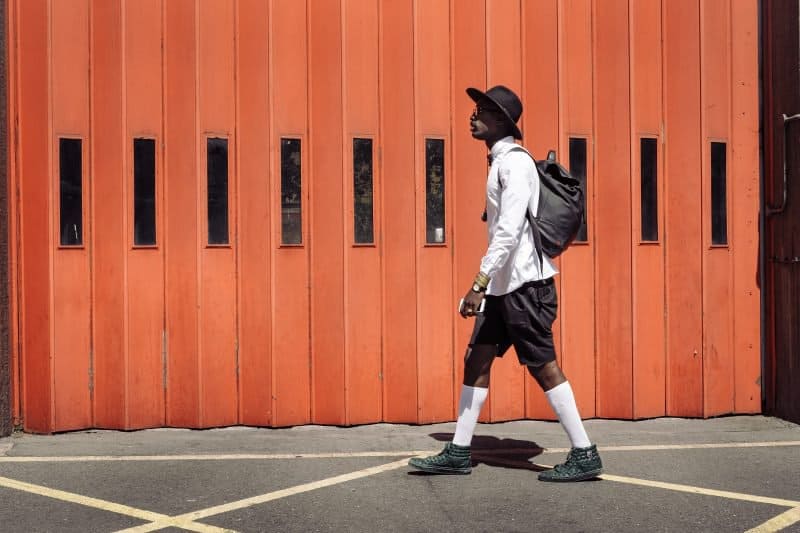
And it’s not just me. A team of researchers at Stanford found that, during and after a walk, a person’s creative output goes up by 60%.
In my experience, I’m less stressed out thinking about what to write while walking. I’m no Stanford Researcher, but maybe the physical activity distracts you just enough to keep you from thinking too hard about your work.
If there’s a good park nearby, combine this tip with the last: go for a hike!

You don’t need to be a druidic mystic communing with nature to be awestruck by a massive tree that is already twice your age and will long outlive you. (But if you are a druidic mystic communing with nature and you’re visiting this site, please email me. I NEED to hear your music).
Some of the songs I’m most proud of came to me while I was on a walk. Sometimes it’s poetic, a melody playing through my mind as if the wind were singing it to me. Sometimes it’s not. Like the time I wrote a folk song because I had the thought “What if my house was painted green?!”
Try walking around your neighborhood or a park. While you’re looking at the trees, houses, sky, or whatever, ask yourself what this place sounds like.
Don’t work too hard at it. Maybe nothing will come to mind. But perhaps you’ll hear a song come forward in response to the scene around you.
Tip #3: Learn Some More Music Theory
Music theory can often feel like Songwriting’s boring cousin who you accidentally started an endless conversation with at a party.
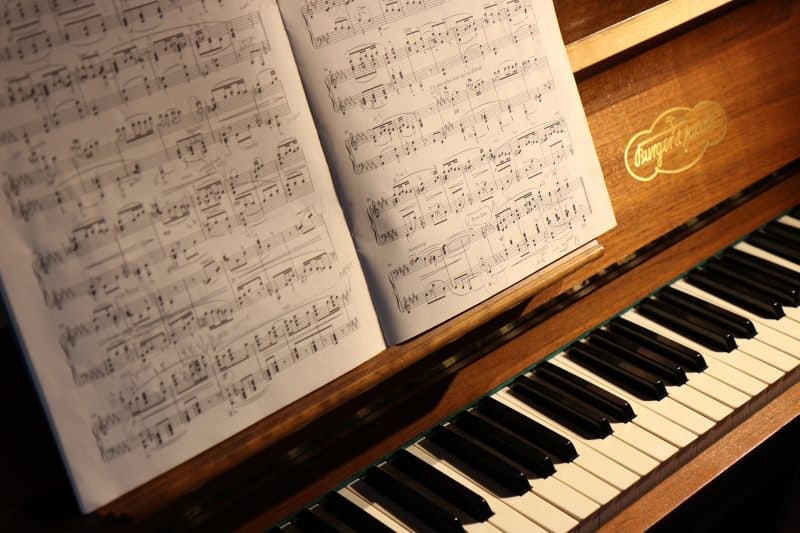
Despite being dry at times, music theory can be extremely helpful in finding inspiration.
For instance, say you’ve just learned about The Circle of Fifths. By challenging yourself to change up keys, you’ll be forced to write different music than you normally would.
Your first dive into some new music theory concept may not be all that great. You might hate what you write in Lydian mode.
That being said, you may just discover a new chord change that you love. And that new chord change may provide the inspirational basis for a new song.
If you’re interested in learning more theory, I recommend checking out Rick Beato.
Beato is a music theory expert and he does a terrific job of making complex music lessons understandable and engaging. He’s more focused on scoring than songwriting, but any musician can learn from his videos.
Tip #4: Collaborate With a Friend
I’m a forgetful introvert, so this is a lesson I have to relearn on a monthly basis: Creativity doesn’t have to be a lonely activity!
I do most of my work alone in my room, and while that often works for me, making a point to go out and see friends does wonders for creative work.
Collaborating with a friend can be a wonderful way to expand your musical horizons.

Your friend will be bringing different musical styles to the table, challenging you to step outside of your creative comfort zone.
Plus, with two minds steering the message of the song, you may end up tackling a subject you don’t usually put so much thought into.
Don’t have many musically inclined friends? That’s ok! You may find that you enjoy writing with them anyways.
One of my closest friends doesn’t know much about music, but I love writing with him because he pitches ideas I would never think to try.
Even if you find that you and your friend didn’t get much work done, it will still be time spent wisely. We all need time to spend with those that are important to us.
It’s wonderful if you and your friend write a hit. But even if you end up just hanging out and catching up, you will most likely be happier than if you spent all your time working by yourself.
Tip #5: Write With an Instrument You Don’t Normally Use
Sometime naiveté can help your music.
Typically write on piano?
Switch things up by toying around with a guitar. You may find yourself refreshed by the parts you write on an instrument you don’t know as well.
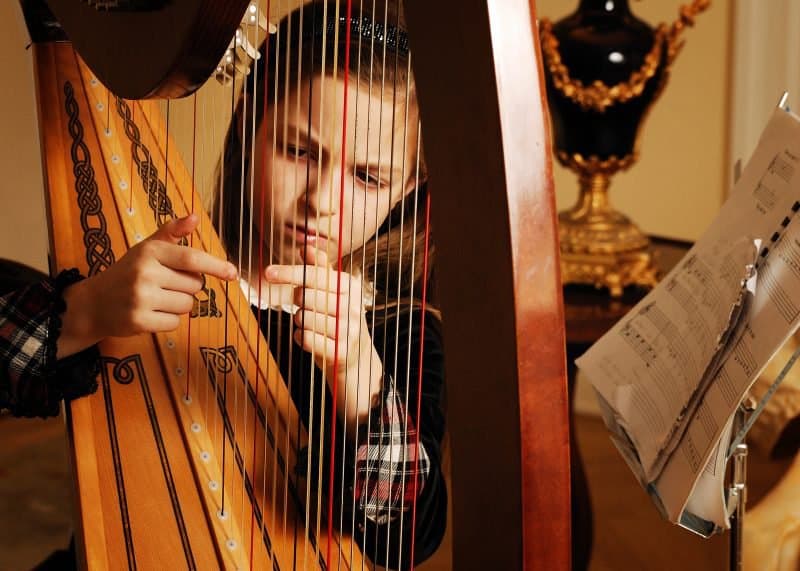
For a long time I only wrote on piano. I may not have been particularly good at guitar when I picked one up, but I was pleasantly surprised by how much it changed my “sound.”
I’d been playing piano long enough that I knew what I liked to hear on it. When I sat down to write, I’d often end up playing the same chords and licks. I got bored with what I was writing because it all sounded too similar.
Guitar was the wild west to me; no rules, no limitations. “How do I even make a chord on this thing? I guess I’ll just pick notes one by one until something sounds good.”
The simple fact that I had no clue how to play what I normally would forced me to think outside the box. All my mental habits with the piano were out the window and now I was experimenting with new, exciting sounds again.
It’s also worth mentioning that some things that are easy on one instrument are near impossible on another. Hammer-ons can add fascinating movement to melodies, but if I stuck to piano alone I wouldn’t have realized this.
I’m not knocking piano, of course. It’s one of my favorite instruments to play! But writing with something that isn’t as familiar as your old favorites can breathe new life into your music.
Try out an instrument you wouldn’t normally play and see how much it changes your work. You may just find that it becomes a recurring part of your songs.
Tip #6: Write About a Fictional Character
Songwriters and poets have been writing from the perspective of fictional characters since these art forms first began.

Whether you’re Homer writing about the adventures of ancient Greek soldiers or a middle aged pop-punker singing about how hard it is to be 16, not everything you write has to be entirely from your point of view.
Coheed and Cambria are a solid example of musicians who use stories about fictional characters as metaphors instead of writing about the literal events of their own lives.
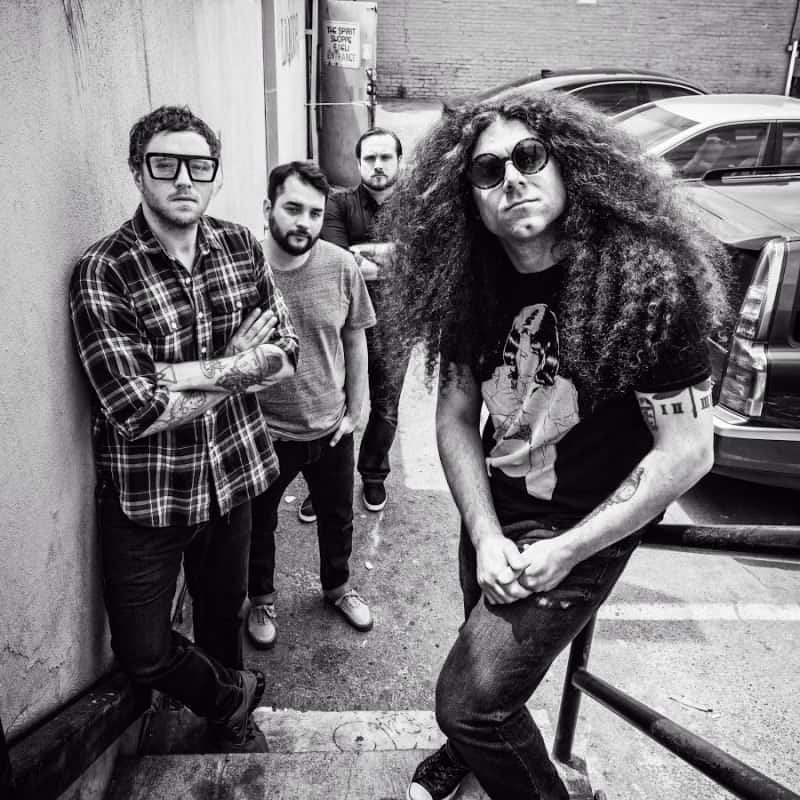
Coheed’s albums are about a space opera the lead singer, Claude Sanchez, has written. The story, while fictional, is largely about events from his actual life.
To be honest, I don’t think Claudio’s a great storyteller. (Tweet at me all you want. I can take it.) But I’m a sucker for concept albums and Coheed is one of the best examples out there of artists merging music and fiction
If you’re having trouble thinking of something that’s happened to you that you want to write about, write a story instead.
Dream up a fictional setting you’d be interested in living in. Is it a big city or a rural town? What’s the weather like? The politics? What is it known for?
Now think up a character who lives there. What is that person’s life like? What do they do?
Once you’ve got a solid idea of who this character is and how the relate to the world around them, try writing a song about it.
It may feel disingenuous at first, but in all likelihood the story you create will echo a lot about your personality since you will be the one who created it.
Tip #7: Relax and Reflect
Be open to inspiration. The most important part of finding inspiration is your own attitude.

Being open to new ideas and experiences is more important than leaving town or going on a music theory knowledge binge.
Your hike in the wilderness won’t be particularly helpful if you’re stressed out the whole time, getting frustrated with yourself about how you NEED to be inspired RIGHT NOW.
While the practices I’ve laid out above can all help, they won’t work every time. Come to peace with the fact that you aren’t going to find inspiration every time you go on a walk. In fact, that’s why you should try make time for these activities regularly.
Maybe your next hike won’t give you any great ideas, but hopefully it can at least help you find some mental peace. Then, the next time you go you might be a little more prepared to think creatively.
It’s also worth noting that inspiration works differently for different people. While the practices I’ve listed above help many people, they’re be no means the only things that work.
Think back on times where you felt particularly excited about working on a project.
Where were you?
What were you doing?
Were you alone or were there people with you?
The answers to these questions can tell you a lot about where you draw inspiration from and what kinds of circumstances make you feel more creative.
What Do I Do When the Inspiration for a Song Goes Away?
To be sure, inspiration is an important part of writing music we’re proud of. But it’s also temporary.

Inspiration is often the spark of excitement that start projects. But inspiration alone won’t finish a song. Eventually the excitement that accompanies beginning a project will disappear.
At this point, it’s easy for doubt to creep in. You begin to wonder if the idea you had was any good in the first place. It will take dedication and faith in your own abilities to get to the finish line.
It’s ok to lose inspiration and it’s ok to be unsure of how good your work is. But you need to push through and finish the work regardless.
Otherwise you won’t improve and you won’t know how good your work is.
If you don’t like the song by the end, it doesn’t mean you’re a failed writer. Not every song will pan out, but you’ll learn from each one.
Conclusion: How to Find Music Inspiration
Inspiration is about breaking out of your usual mental habits. These tips will hopefully help you find music inspiration.
- Get out of town.
- Go for a walk.
- Learn some more music theory.
- Collaborate with a friend.
- Write with an instrument you don’t normally use.
- Write about a fictional character.
- Relax and reflect.
If you want to dig deeper into music production and learn what it actually takes to make mixes that sound pro… And you’re an intermediate or advanced producer… Be sure to check out the free masterclass: Enjoy!Next Steps


